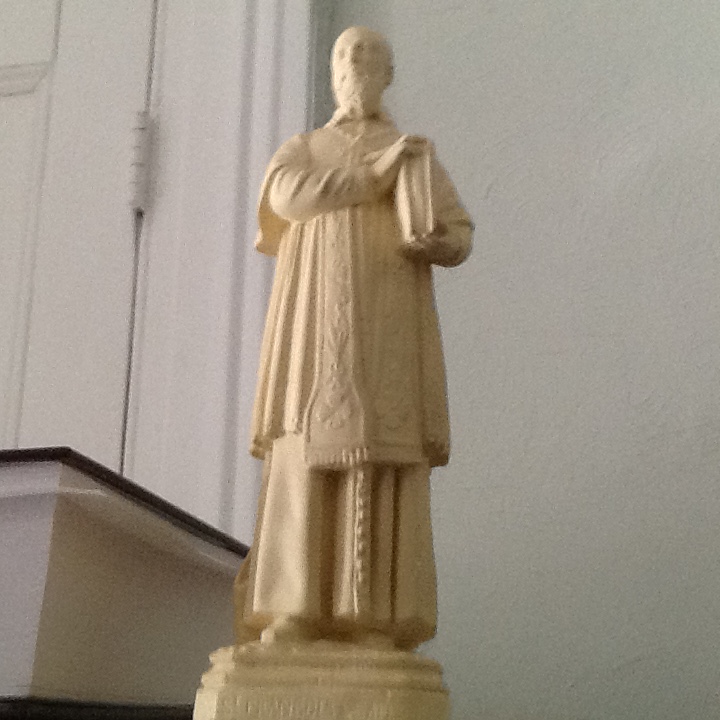Treatise on the Love of God

Our holy Founder is constantly interrupted in the writing of his work, which puts our holy Mother in difficulty, she said to him (Correspondence I Letter n°21): “I am greatly mortified when I know that you are being diverted to write in the book of divine love, a love that my heart desires ever more ardently.” The Lord also urges him to persevere.
He wrote to our Holy Mother in January 1614: “Our interior no longer has resistance; the fear and laziness of the external man must yield to the victorious will of our Master who wants that, cold and frozen as I am, I write of his holy love. Count this day as the one on which I begin to use all the moments that I can get from the pressure of my other duties, and incessantly invoke upon me the love of the divine Lover. (UEA p.314-St Fr. de S. XVI p.140).
From this same year, the “Fragments on the Virtues” which we find in volume XXVI (p.25ff) are dated; these notes were intended to enter into the Treatise. Francis teaches us how to “do everything out of love” in the article entitled Some Ways to Transform Our Works Through Charity. Here is what he said to himself: “After all the talk about the power of charity for the ennoblement of the virtues, we must put the method of using charity to this, and we must put the Meditations of the offerings (Preparation for oblation Volume XXV p.149), taken from the Rules of the Visitation (from 1613). Then, say that we must do this exercise every year, the protest every month, the morning exercise every day, and during the day several ejaculatory prayers (cf. TAD Book 12 ch.9), by which the the fire of charity ignites more and more and burns as a holocaust all our actions to the glory of God; and accustom ourselves to doing all things in the name of God. »
In the author’s heart, there is a sort of back and forth from the Visitation to the Treatise. The latter is “the history of the birth, progress, decadence, operations, properties and excellences of divine love” (cf. Preface of the TLG), and the Visitation itself only lives from this love, it grows, develops, sanctifies itself by the very sweet force of divine love (see above, the introduction). 1614 is considered the central period of the drafting of the Treatise. On November 7, the author finally wrote: “The book of the Love of God is finished, but it must be transcribed before it is sent” (St Fr. de S. XVI p.261). This work will be long, the author will considerably improve his work with new insights and with the fire of love which will set his heart ablaze during the rereading. The trials themselves stoke this fire.
Source: Conference of Sr Marie Pierre